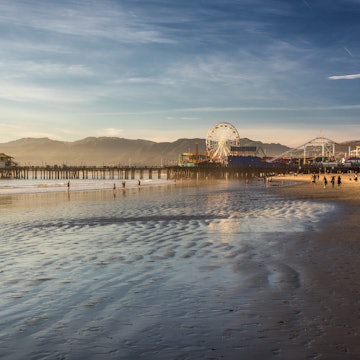

Joshua Tree National Park at sunset. AndrePagaPhoto/Shutterstock
What makes Joshua Tree National Park so memorable? Its natural beauty is simply astonishing. The national park is where two deserts with totally different ecosystems – the Mojave and the Colorado – meet. It’s home to striking succulent-filled fields, towering rocks eroded into skull- and animal-like forms, and groves of trees with blade-like leaves. Spend a day here and you’re less likely to ask “What desert am I in?” than “What planet have I landed on?”
And because deserts are inherently places of wonder, first-time visitors are likely to have many questions. For example: is Joshua Tree National Park doable as a day trip from Palm Springs? What about from Los Angeles? Will I see actual trees named Joshua? And where do I find the dome that must have been designed by aliens?
Start planning your trip to Joshua Tree with this guide, but before visiting any US national park, visitors should be aware that staffing cuts in the National Park Service (NPS) are having an impact on the amenities available.
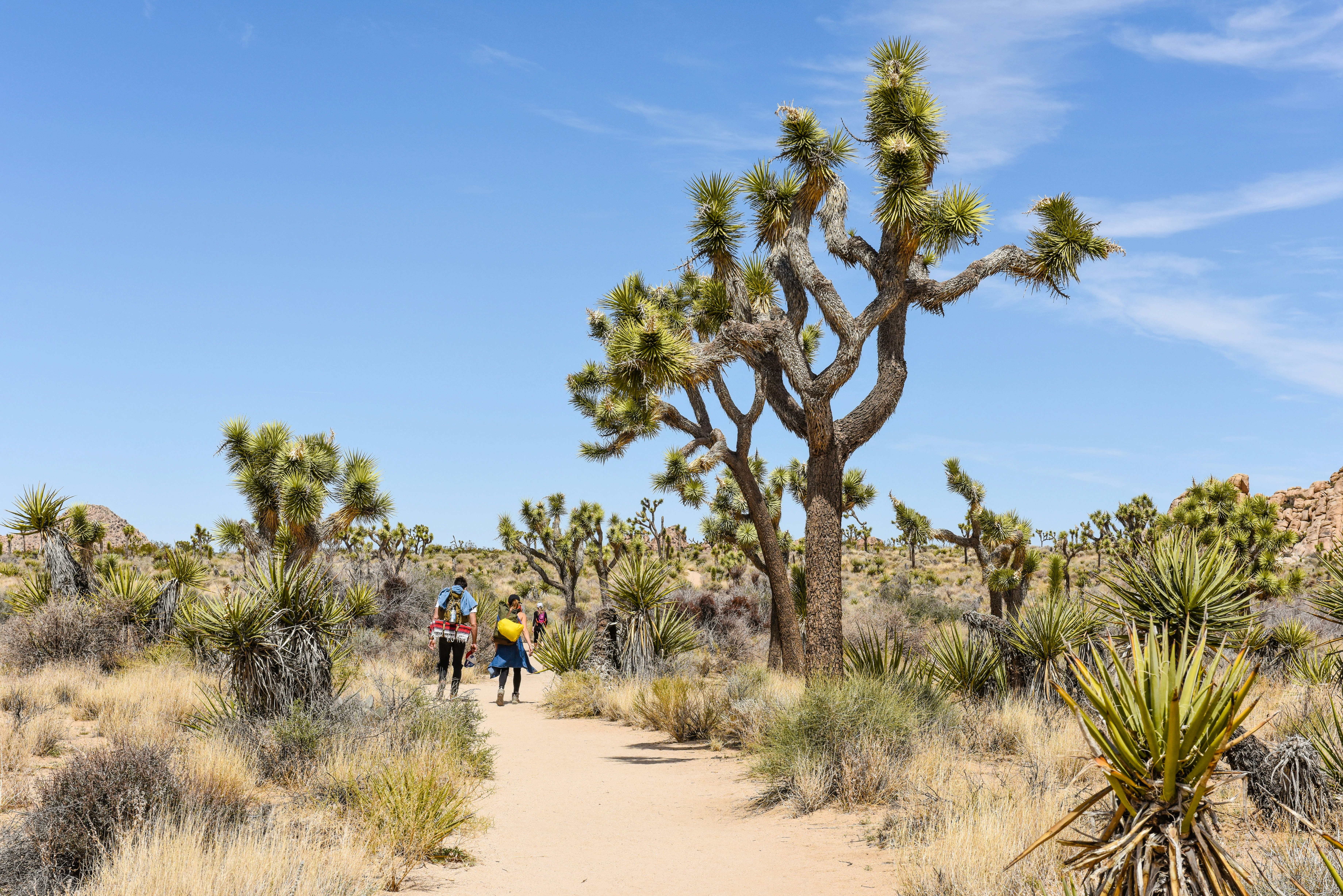
When should I go to Joshua Tree National Park?
As you probably guessed, desert-based Joshua Tree gets blazing hot in the summer – like, triple-digits-every-day hot. This does make May through September the low season, when you’re more likely to score deals on hotel rates. The blazing heat, however, can be dangerous, so visitors are advised to check the weather daily and stay flexible with plans, whether limiting outdoor activities to early mornings (before 9am) or evenings (after 5pm), or avoiding them altogether. The park also warns guests of increased bee activity during summer, which may persuade anyone with an allergy to visit in the cooler months.
October through April is peak season, with April being especially busy because of the Coachella Valley Music and Arts Festival in nearby Indio (about 25 miles from the park’s south entrance). While it’s always fun to mix music with outdoor adventure, you’re likely to pay an arm and a leg for lodging everywhere from Palm Springs to Pioneertown, including every Airbnb and converted Airstream in the area. Fall, winter and spring have pleasant daytime temperatures for hiking and climbing, ranging from low 60°Fs to mid 80°Fs – but nights can get cold, especially December through February, when it can dip into the 30°Fs.

How much time should I spend in Joshua Tree National Park?
There’s enough desert eye candy to treat your senses for a week…or much more. But if, say you’re visiting Palm Springs and want a national-park pit stop, a shorter visit can work. (For a post-hike martini back in Palm Springs, by the way, head to Melvyn’s.) A day trip from Los Angeles, however, is ambitious – to say the least. Depending on traffic (which is guaranteed in Southern California), the drive is between 3 and 4 hours each way. Count on staying overnight near the park.
If you have one day…
Stick to hiking the trails near the park’s west and north entrances, which open up to the Mojave Desert. With higher elevations than the Colorado Desert portion of the park, the Mojave is home to mind-boggling boulders and otherworldly rock formations as well as the park’s namesake trees – and you can’t visit Joshua Tree National Park without laying eyes on one.
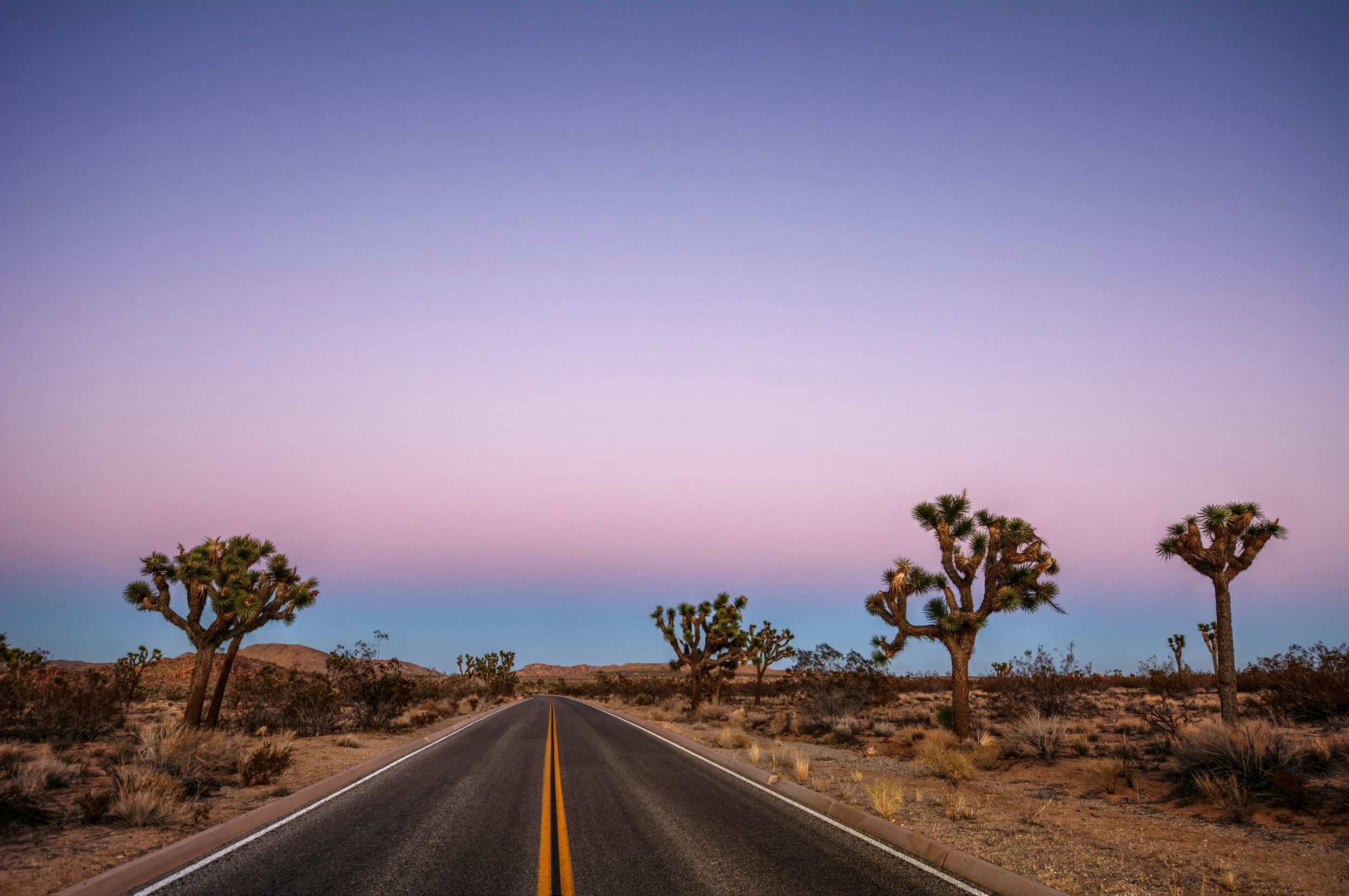
If you have a weekend…
With at least two days, you can explore both the Mojave Desert portion of the park and the Colorado Desert side, which is known for its fields of fuzzy-looking cacti. While you won’t have time to trek every foot of trail, you’ll be able to get in a few solid hikes and still have time for some scenic drives. You can also spend the night. While there are no hotels within the park, there are 500 campsites, most of which can be reserved up to 6 months in advance.
If you have a week or more…
The California desert is your oyster. Hike to your heart’s content inside the park, then branch out to nearby trails like Tahquitz Canyon near Palm Springs, home to a seasonal 60ft-high waterfall. In addition to visiting Palm Springs, sneak in a day trip to Idyllwild, a charming mountain town that’s a great respite from the desert on extra-hot days. A week is also plenty of time to explore the unique towns and quirky attractions north of the park. Visit an Old West–style town originally built as a film set in the 1940s (Pioneertown), see sculptures made from defunct TVs and toilets (Noah Purifoy Desert Art Museum in Joshua Tree) and get a sound bath at that alien-designed dome mentioned above (the Integratron in Landers).
Is it easy to get in and around Joshua Tree National Park?
Yes – if you have a car. Between the Coachella Valley and the vast high desert of interior California, the park is within easy drive of marvelously midcentury playground Palm Springs and the holistic hot spot that is the city of Joshua Tree.
The park has paved roads so it’s entirely accessible, but there’s no public transportation within the park, and cell service is too spotty to count on calling for a ride. Once you’ve arranged your own set of wheels, be sure to arrive with a full tank of gas and plenty of drinking water, as there aren’t gas stations, restaurants or grocery stores in the park. The closest airport is Palm Springs International Airport, 45 miles away.
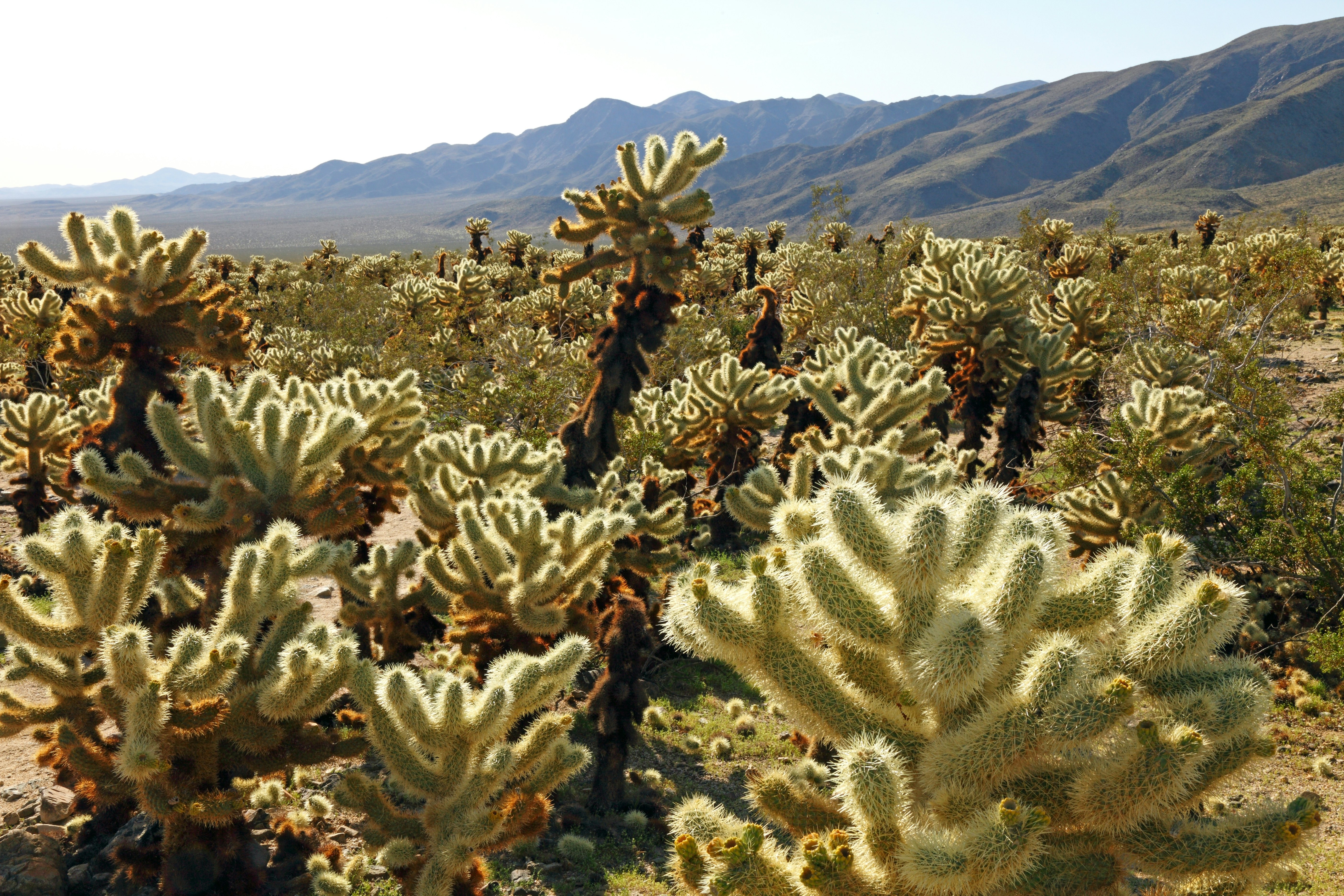
Top things to do in Joshua Tree National Park
Stroll among thousands of teddy-bear cholla cacti
Like so many of Joshua Tree’s trails, the Cholla Cactus Garden proves that mileage isn’t the only thing that will get your heart pumping. Only a quarter-mile loop, the path teems with eye-catching cacti with fuzzy-looking limbs that almost resemble the outreached arms of a teddy bear. These plants are definitely prickly, though – so we don’t recommend going in for a hug.
Hike a historical gold mine
What today is an area of hiking gold was once a literal goldmine. Over the course of about 40 years in the last century, Lost Horse Mine produced today’s equivalent of $5 million in silver and gold, making it one of the most successful mines in the park. These days, the tunnels and mill are fenced off, but you can still see artifacts and ruins in the area, including stone houses where the miners lived. Out and back, Lost Horse Mine Trail is 4 miles, or you can take a looping route that’s 7 miles total.
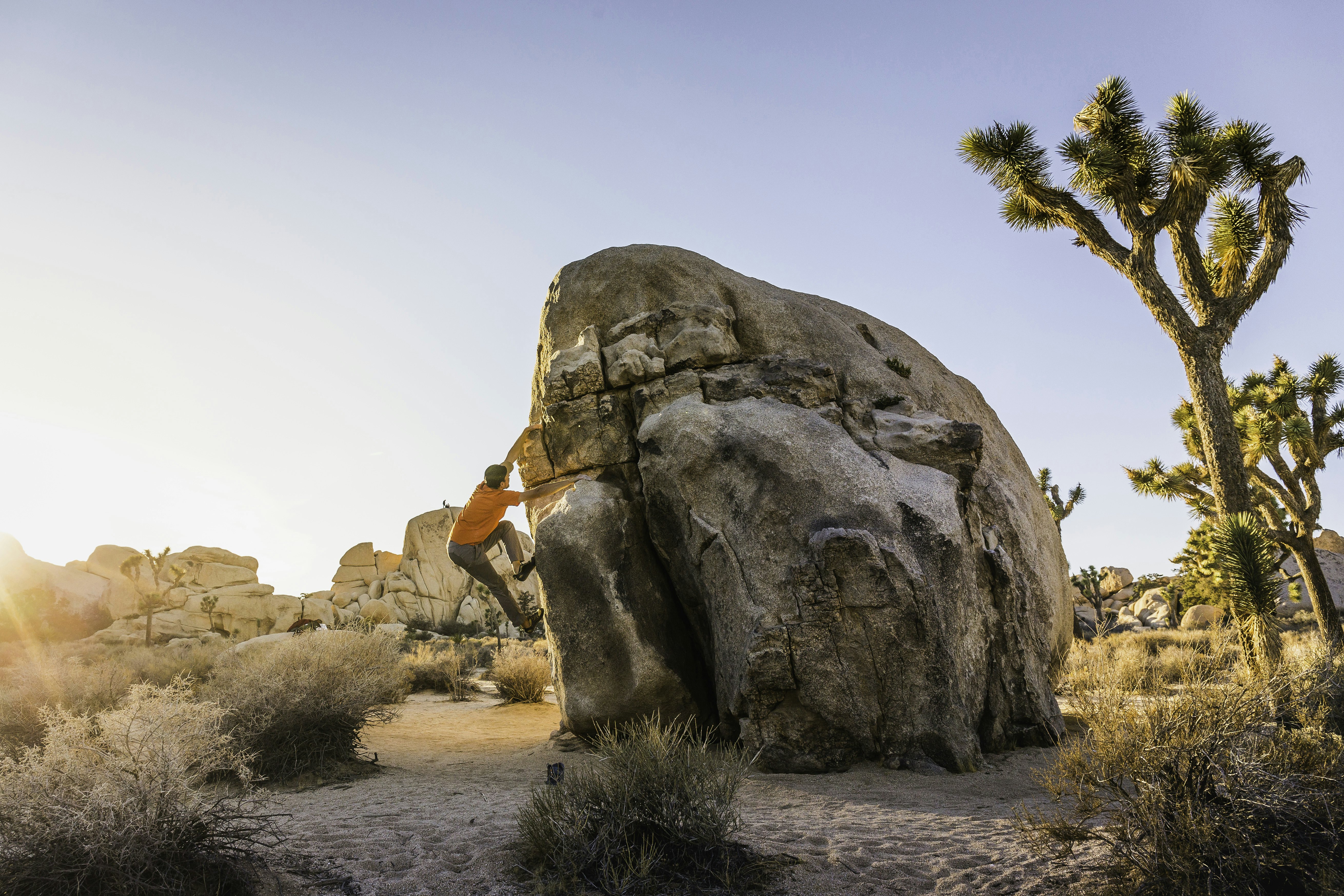
Scale a monzogranite rock formation
All those captivating crags and bewitching boulders aren’t just pretty scenery. Joshua Tree National Park draws rock-climbing enthusiasts of all levels to its more than 8000 climbing routes. Hiring a guide, especially if you’re new to the sport and/or the park, is always a good idea. Cliffhanger Guides, Joshua Tree Guides and Stone Adventures all offer half-day and full-day adventures.
Get a glimpse of the Milky Way
Thanks to very little light pollution, Joshua Tree is one of the rare International Dark Sky Places in the USA – which means it’s a prime place for stargazing. The park has four designated stargazing areas that are especially dark: the parking lots of Quail Springs, Hidden Valley, Cap Rock and Ryan Mountain.

My favorite things to do on a Joshua Tree National Park trip
Get maximum hiking excitement for minimal sweat
The photos will show your family and friends that you scaled gargantuan granite boulders beneath the Mojave Desert sun. But they don’t have to know the hike was only a mile. That’s why I’m a huge fan of the Hidden Valley Nature Trail: an easy, flat loop that’s doable for even my one-year-old from the comfort of his stroller. But the views and opportunities for scrambling up rock formations make you feel like a true adventurer, no matter your age.
Stay at a souped-up roadside motel
In recent years, California has been in the midst of a motel renaissance, with hoteliers rehabbing atmospheric if simple properties dating to the 1940s and ’50s. These resurrected roadside palaces are my preferred accommodations around Joshua Tree: they feel as timeless as a national park getaway. Take your pick from Pioneertown Motel, where legend has it Gene Autry played poker from sundown to sun up in room #9; Harmony Motel, where U2 was photographed in their Joshua Tree era; and Mojave Sands, renovated by a former furniture maker for fashion designer Marc Jacobs.
Catch a concert at a saloon-style music venue
Another reason I like to stay at the Pioneertown Motel: it’s a 2-minute shuffle from there to Pappy & Harriet’s, a former cantina and biker bar that now hosts musicians like Orville Peck and Patti Smith for intimate performances. Even if you don’t come for a concert, you can still stop in for barbecue, burgers and cactus-flower cocktails.
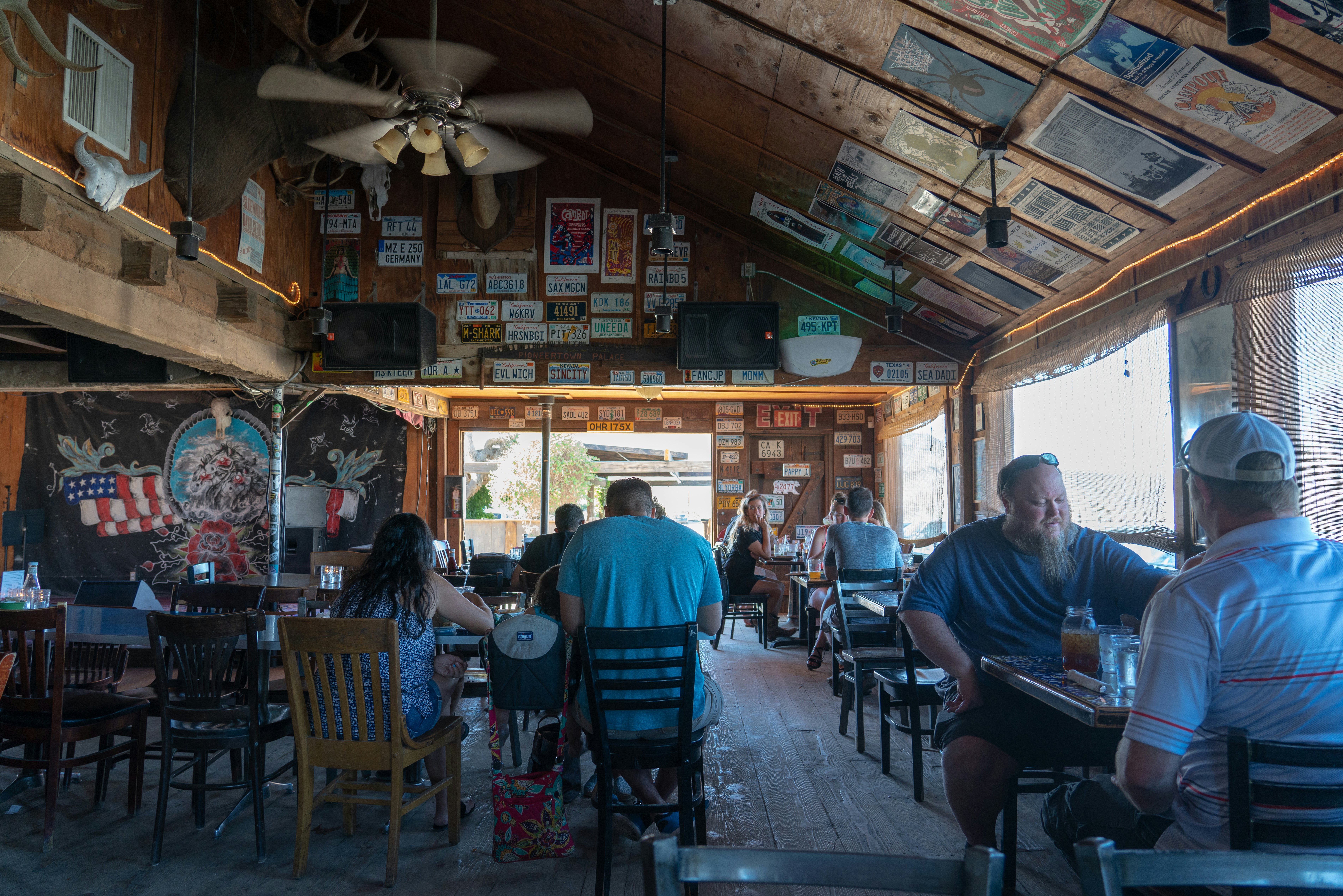
How much money do I need for Joshua Tree National Park?
Both in terms of activities and your budget, Joshua Tree National Park is a choose-your-own-adventure kind of place. You can splurge on a house with a pool, or snag a campsite for only slightly more than your breakfast burrito. A heads up: hotels and house rentals in Palm Springs skew more expensive than those in the high desert. Within the latter, lodging in Twentynine Palms offers better value than Pioneertown or Joshua Tree town.
Joshua Tree National Park entrance pass: $15 per person per week for those entering on foot or bike; $30 per private vehicle per week, including all passengers
Campsite in the park: $15–25 per night
Campsite outside the park: $44 per night
High desert hotel room: $150–300 per night
Palm Springs hotel room: $250–600 per night
High desert three-bedroom home rental: $250–350 per night
Palm Springs three-bedroom home rental: $500-$600 per night
Cup of coffee: $4
Breakfast burrito: $12
Burgers and fries for two: $35
Beer at a bar: $7
Cactus flower cocktail: $14
Souvenir t-shirt: $25
Half-day rock-climbing guide: $150 per person (for a group of four)
Tickets for a concert at Pappy & Harriet’s: $70
Public sound bath at the Integratron: $58.30 per person
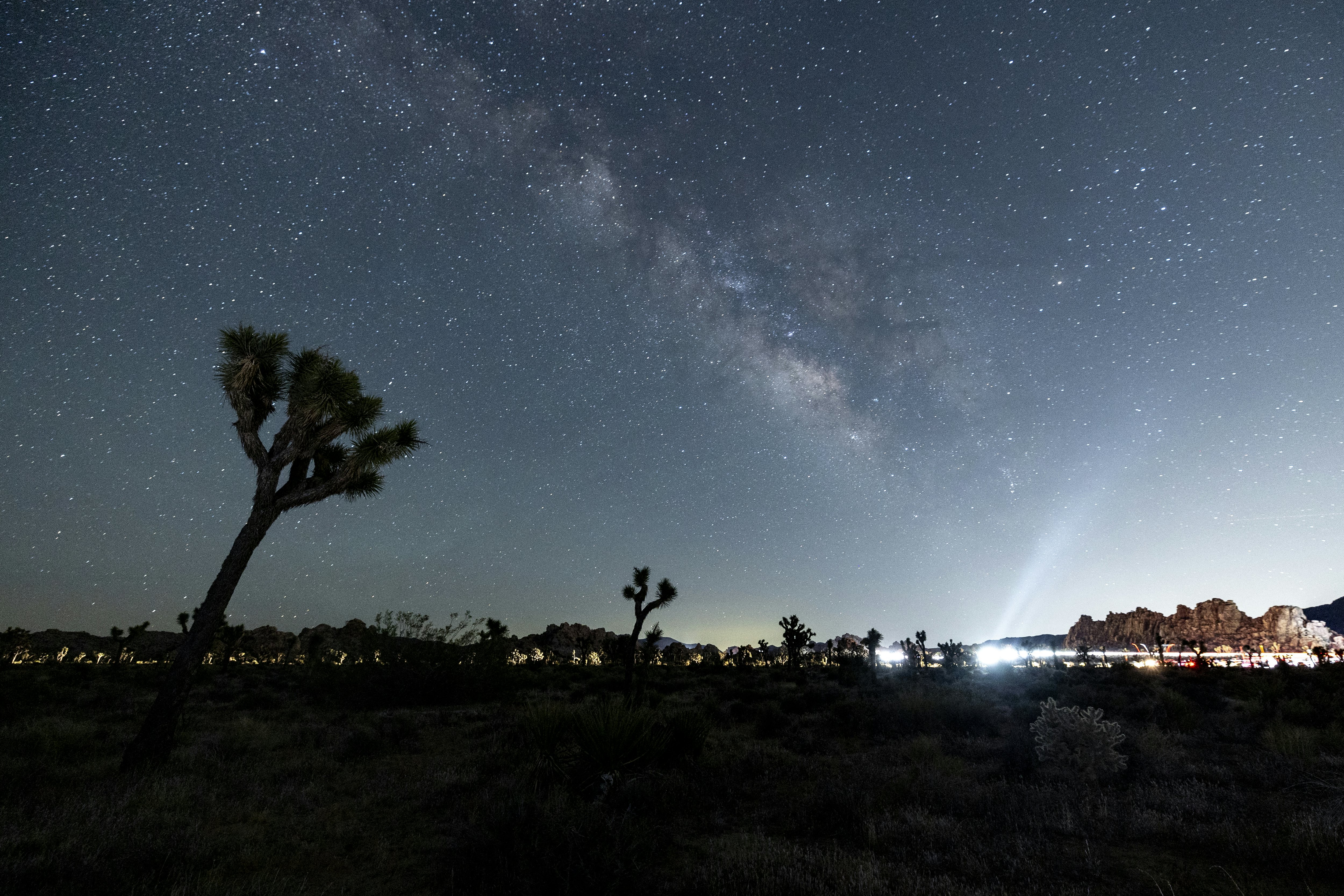
Are some of Joshua Tree National Park’s three entrances busier than others?
The west entrance, near the town of Joshua Tree, is the busiest, with waits up to an hour on weekends during peak months. Exiting here also gets busy just after sunset. Near Twentynine Palms, the north entrance is less busy; the south entrance, near Cottonwood Spring, is usually the least crowded.
Are there picnic areas in Joshua Tree National Park?
Get your breakfast burritos to go: the park has eight picnic areas (Cottonwood, Indian Cove, Live Oak, Split Rock, Cap Rock, Hidden Valley, Quail Springs and Black Rock).
What time does Joshua Tree National Park close?
It doesn’t! The park is open 24/7, making it especially great for stargazing.
What should I pack for Joshua Tree National Park?
Pack plenty of layers, especially if you’re visiting in the winter when daytime weather may be sunny and 65°F – but dipping town as low as the 30°Fs come night. A sizable water jug, comfortable hiking shoes, sunscreen and a hat are also key.
Was the album art for the Joshua Tree by U2 shot in the park?
The bad news: no. The good news: no need to waste your time searching for the famous cover tree. The desert landscape featuring a lone Joshua tree (Yucca brevifolia), featured on the inside cover of the album, was actually shot about four hours' north of the region, much closer to Death Valley National Park. Sadly, that particular tree is no more. But a dedicated fan dropped a bronze plaque in its place inscribed with the question, “Have you found what you’re looking for?”













